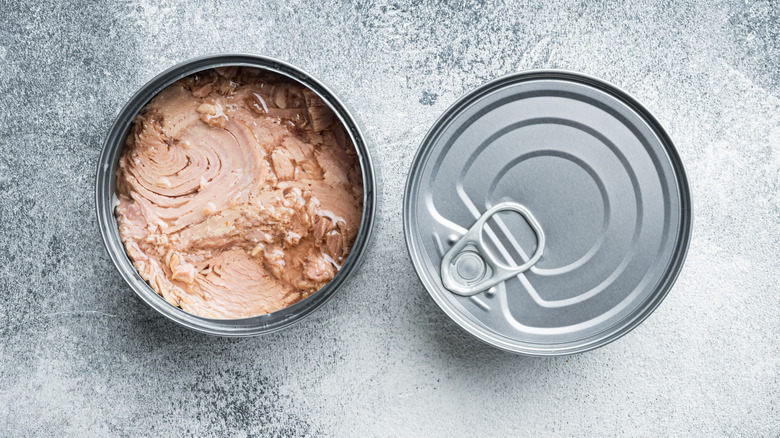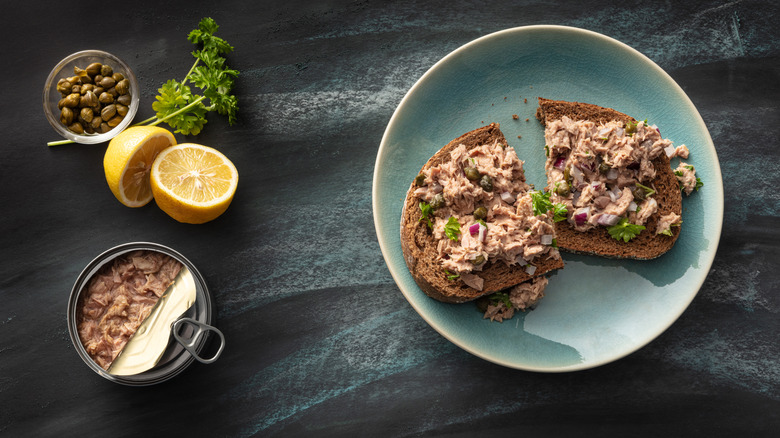What Does It Mean When Your Canned Tuna Is 'Chunk Light'?
Canned tuna is a major staple for many people. It's versatile, long-lasting, widely available, affordable, and a high-protein source of numerous vitamins and minerals. But there's still a lot you might not know about the key ingredient in your favorite tuna salad recipe. Is it packed in oil or water? It is sustainably processed? And what do descriptions like "chunk light" mean? It's easy to dismiss that last one, but you shouldn't. It's entirely possible that someone who thinks they don't like tuna is, in fact, only put off by this variety — they may absolutely love another kind of tuna. Why is this? "Chunk light" refers to both the texture of the tuna you're going to get and the flavor.
In a nutshell, chunk light tuna is darker, has a stronger taste than other types of tuna, and is cut into smaller pieces. The label also means there's likely more than one kind of tuna in that can. Knowing these facts is key to making the best choice for your needs and tastes. And that's just the beginning of everything there is to know about this important little label.
Chunk light tuna has a more fish-forward flavor
Have you ever wondered if canned tuna is cooked or raw? It's cooked, and that's actually the reason for one of the major differences between chunk light tuna and solid tuna. While albacore is considered white tuna, light tuna is skipjack and yellowfin. (Some brands use big-eye or tongol as well.) Those two species have darker meat, and are of very different sizes. While a skipjack can weigh up to 40 pounds and grow to three feet long, a single yellowfin can weigh as much as 400 pounds.
When those two very different fish are cooked, fileted, and prepped for the can, they're cut into similar sizes. The smaller skipjack tuna lends itself to making small chunks, while yellowfin is cut into those same smaller chunks for a less firmly textured product. That chunk light label also means your tuna is going to have a much more distinctly fishy flavor, far stronger than that of solid white albacore. If you're looking for a more mild tuna, skip the chunk light.
There's one other thing to consider, and that's differences in mercury content. When Consumer Reports did some large-scale testing of mercury in canned tuna, it found that light tuna had a lower mercury content overall — and that was true across different brands. So, while it might be less firm and more fishy, the trade-off might be worth it for you and your family, especially considering the impacts of frequently eating canned tuna on your body.

